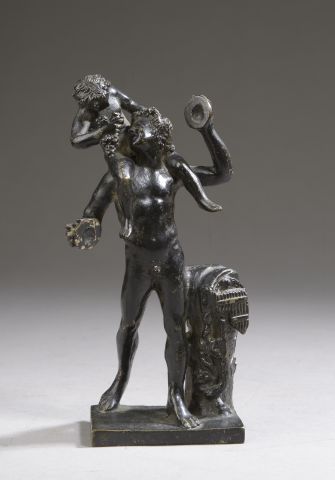Description
After Pietro MASULLI (XIXth century). The God Pan playing cymbals, Bacchus child mounted on his shoulders. Bronze with black patina (wear). Height : 16 cm. 16 cm - Width : 6,5 cm - Depth : 5 cm
20
After Pietro MASULLI (XIXth century). The God Pan playing cymbals, Bacchus child mounted on his shoulders. Bronze with black patina (wear). Height : 16 cm. 16 cm - Width : 6,5 cm - Depth : 5 cm
You may also like
